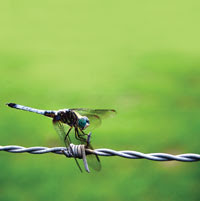WAVE Magazine Review

Sushma Joshi starts a new beginning for English medium literature in Nepal
by EMMA SCIANTARELLI
FROM ISSUE # 163 (July 2009) | IN THIS ISSUE
Good literature plays a much deeper role in the grand scheme of history than just being a good way to pass the time on a Saturday afternoon. It's an account of culture and history, with a flare of authenticity giving a face to those who lived the time. Authors like Jane Austen, Victor Hugo and the likes became literary giants not only for their ability to entertain, but also for their ability to capture history through a narrative voice. When a writer pens the everyday lives of real people amidst a certain cultural, social, or political backdrop s/he offers an entirely different insight than a textbook ever will.
As a fan of South Asian literature and an avid reader of the regions most celebrated writers, I've waited for a writer to represent the country I love most, Nepal. Every time I go into a bookstore abroad and find the shelf where the works of Jhumpa Lahiri, Salman Rushdie, Arundhati Roy and the likes live, my soul instantly sings as I feel connected back to this beloved subcontinent. But my momentary high sinks down when I think, "Why is there nothing, absolutely nothing, written by a writer from Nepal?"
Now there is.
The only Nepali so far to be nominated for the Frank O'Connor International Short Story Award, her short story collection, The End of The World has already helped Sushma Joshi gain international recognition. And why not? Her stories are simple and fun, yet show so many different facets all too common to the Nepali community. In a brief 176 pages, examining religion, migration, marriage, war, friendship, love and loss, Joshi leaves no stone unturned in her presentation of what it means to be Nepali. A boy's first experience with international cheese, the life of a Bombay migrant worker turned Maoist, and the book's namesake, a testimony of the day, 'the end of the world', Joshi paints a few of the many different faces of Nepal, keeping it all in context with the political instability that's remained at the crux of the country for the last decade. While not many of her stories left me pondering for days, it was still a fun read and a testimony to life in Nepal that's yet to be written.
Although at times a bit spotty when it came to editing-clumsy sentences and a few blatant grammatical errors that any decent editor would have polished up–the book was worth the Rs 250 I had spent. Most importantly, however, is that Sushma Joshi's writing and perseverance has not raised the bar in English medium literature in Nepal, but created it when there was virtually none. The End of the World was Sushma's great gift to Nepal, not only for what it dealt with, but also for conveying the message that literature is a tradition that must not be lost.
(Editorial comment: Samrat Upadhyay's book "The Royal Ghosts" was shortlisted for the Frank O Connor in 2006.)

Comments